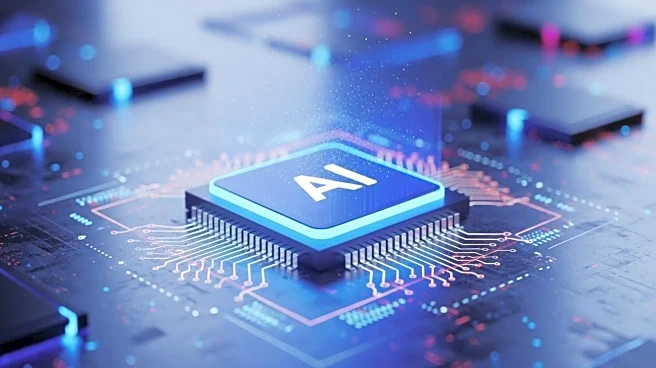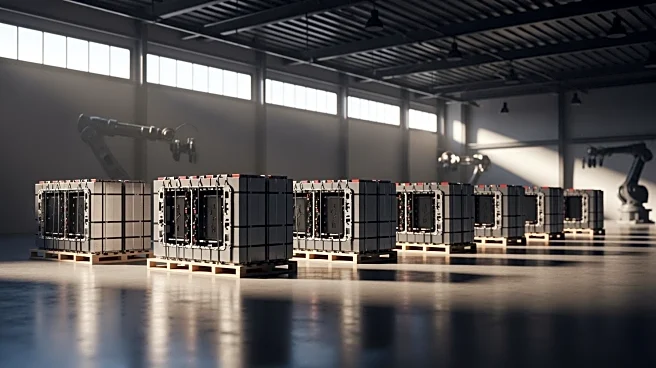What's Happening?
OpenAI has announced a significant partnership with semiconductor company Broadcom to acquire 10 gigawatts of custom AI accelerator hardware. This hardware will be deployed in OpenAI’s data centers and partner facilities, starting in 2026 through 2029.
The collaboration is part of OpenAI’s strategy to design its own chips and systems, embedding insights from its AI model development into hardware. This partnership is estimated to cost OpenAI between $350 billion and $500 billion. This deal follows OpenAI’s recent infrastructure agreements, including a multi-billion dollar purchase of six gigawatts of chips from AMD and a potential $300 billion cloud infrastructure deal with Oracle.
Why It's Important?
The partnership between OpenAI and Broadcom marks a significant step in advancing AI infrastructure capabilities. By investing heavily in custom AI hardware, OpenAI aims to enhance its data processing power and efficiency, which is crucial for the development and deployment of advanced AI models. This move could position OpenAI as a leader in AI technology, potentially influencing the broader tech industry by setting new standards for AI hardware development. The substantial financial commitment underscores the growing importance of AI in driving technological innovation and economic growth.
What's Next?
OpenAI's collaboration with Broadcom is expected to commence hardware deployment in 2026, with continued expansion through 2029. As OpenAI integrates these custom accelerators into its infrastructure, it may lead to increased competition among semiconductor companies to develop more efficient AI hardware solutions. Additionally, OpenAI's strategic partnerships with companies like AMD and Oracle could further solidify its position in the AI industry, potentially leading to more collaborations and innovations in AI technology.
Beyond the Headlines
This partnership highlights the increasing convergence of AI and hardware development, emphasizing the need for specialized chips that can handle complex AI computations. The collaboration may also prompt discussions on the ethical implications of AI advancements, particularly concerning data privacy and security. As AI technology becomes more integrated into various sectors, stakeholders may need to address potential societal impacts, including job displacement and the need for new regulatory frameworks.
















